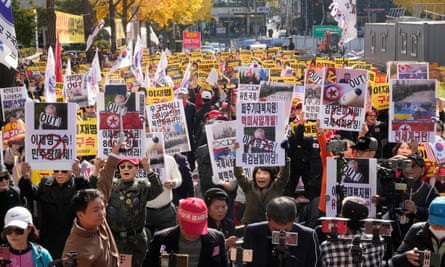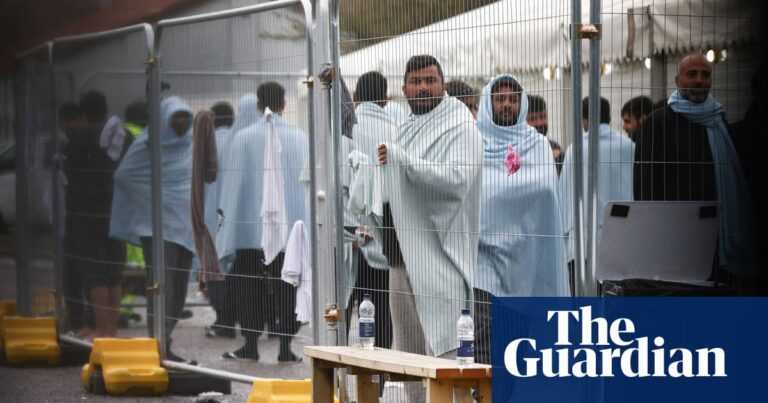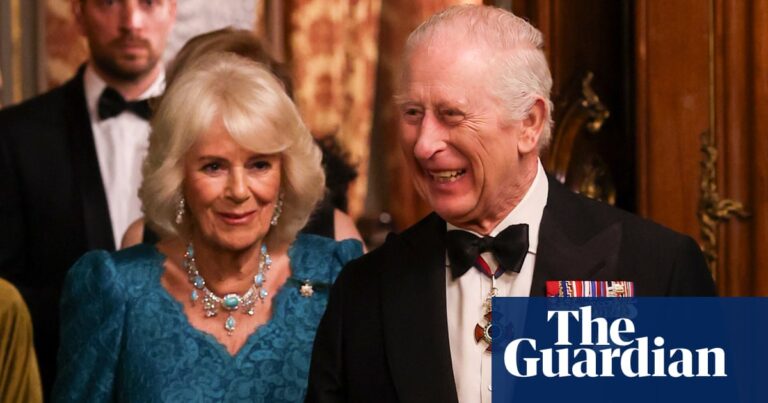China is increasingly uncomfortable about North Korea’s engagement with Russia and finds the growing cooperation between Pyongyang and Moscow unnerving, Kurt Campbell, the US deputy secretary of state has said.
He was leaning into a growing debate among the US’s security partners in Asia on whether China supports the decision of North Korea’s Kim Jong-un to send 10,000 troops to fight for Russia against Ukraine. It is said the North Korean troops are now inside Russia.
There are also doubts in the Japanese foreign ministry that China supports North Korea’s dispatch of troops. Officials say China has largely been silent over the issue, and may be worried that the military collusion in Ukraine will help an American drive to form a network of alliances with South Korea and Japan in east Asia that Beijing already views as aimed at curbing its power.
In a rare olive branch China has told Japan it intends to remove a buoy it installed inside Japan’s exclusive economic zone near the Japanese-administered Senkaku Islands in the East China Sea. Although the step is small, the islands are a flashpoint between Japan and China, and it is seen as symbolic of an effort to encourage those inside Japan that do not want to be drawn into a US-led conflict with China.
In a recent seminar at the Center for Strategic and International Studies, a Washington thinktank, Campbell said: “The topic that is becoming increasingly uncomfortable for Chinese interlocutors is the DPRK [North Korea] engagement with Russia.
“In some of the discussions we have had it seems we are informing them of things that they were unaware of with regard to DPRK pursuits, and they are concerned that Russian encouragement might lead the DPRK to contemplate either actions or military actions that might not be in China’s interests.”
He added: “China has not weighed in directly to criticise Russia but we do believe that the increasing coordination between Pyongyang and Moscow is unnerving them.”
But analysts differ on whether there is a substantial fissure between China and Russia.
Dennis Wilder, a former CIA assistant director for east Asia and Pacific, said: “The radio silence in Beijing on this subject is staggering. There is not a word in the Chinese press either about the strategic agreement made between Russia and North Korea in the summer, or about sending troops.
“How does China explain what is going on and how do they ignore internationally the fact that their client state is now fighting in Ukraine? The Europeans are going to be upset and they are not going to be upset at the North Koreans, but with China.
“If Russia goes down the road of nuclear assistance to North Korea this will bolster the Americans’ alliances in east Asia and maybe create a true Nato so President Xi Jinping is in a very very difficult spot.”

Adm Samuel Paparo, the commander of the US Indo-Pacific Command, said at the Halifax security forum on Saturday that the relationship between Russia, China and North Korea was having a “certain transactional symbiosis”.
He claimed: “North Korea is fulfilling artillery and missile needs to Russia and Russia in return will probably provide missile and submarine technology for North Korea.” He added he thought China had provided Russia with 90% of its semiconductors and 70% of its machine tools to rebuild its war machine.
Andrew Shearer, the director general of Australia’s Office of National Intelligence, was also sceptical about the extent of China’s unease.
“The idea of driving wedges between Putin and Xi is pretty fanciful and if we do not face up to the reality that Putin is only still in the war in Ukraine today due to China’s military, diplomatic and dual use support we are not going to fashion effective strategies.”
The doubts about China’s attitude are mirrored among observers in Japan too. Prof Emi Mifune, of the faculty of law at Komazawa University, said: “There is no way that China did not know what Russia was planning. China cannot afford to see Russia lose against the west, and if Russia wins it helps set up a propaganda advantage and precedent for China in seeking to control Taiwain.”
She pointed to the May 2024 China-Russia summit as a significant moment when China extracted concessions from Russia, including over Chinese access from the Tumen River to the Sea of Japan.
Prof Hideya Kurata, of the National Defense Academy of Japan, believes Beijing’s position is one of neither approval or disapproval, but one of discomfort. He has been highlighting how the conflict has to be seen in the context of North Korea’s decision to abandon efforts to reunify the Korean peninsula.
He said North Korea was trying to build an escalation ladder that starts with tactical nuclear weapons, extends to intermediate-range ballistic missiles targeting Japan, intermediate- to long-range missiles targeting Guam, and intercontinental ballistic missiles that could target the US mainland. He said he did not believe the US had medium-range nuclear weapons on land or at sea in the region that would act as a deterrence to North Korea.
Source: theguardian.com


















